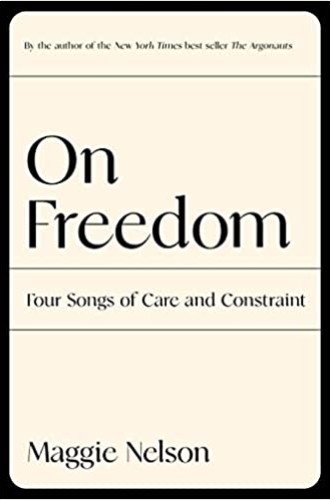Maggie Nelson finds freedom in the emphatic middle
Her new essay collection examines how Americans thread the needle between care and constraint.
Proposals for an emphatic middle in our political and theological discourse tend to come from conservatives or liberals who feel squeezed. Maggie Nelson has no wish to leave her post on the radical left but nonetheless wishes to articulate an emphatic middle that she and others, right and left, can acknowledge.
Readers of Nelson’s work—she is best known for The Argonauts, but there is a lot more, and all of it is worth your time—will find here her signature elements: the intimacy and candor of voice, the range of references known and unknown, the insistent attention to the contexts in which she is writing, the always lucid and often lyrical prose. Yet this book differs from its predecessors in that it is more explicitly diagnostic of our particular moment. Written in the time of Donald Trump’s presidency by an unabashed and unapologetic leftist, On Freedom is an anatomy lesson concerning contemporary American valuations of freedom.
Nelson argues that the middle requires citizens who can recognize both freedom’s uses for hegemony and its genuine possibilities for a rich common life. Hence the subtitle: for Nelson, freedom bespeaks a past, a present, and a future marked at once by the hegemony of constraint and the freedom to care. Her emphatic middle refuses to emphasize one part at the expense of the other. To deny, for example, that slavery was, is, and remains a basic inflection point of American life is occasionally misguided and often malicious; to conclude that this fact simply and decisively forecloses possibilities for a better future is an unacceptable counsel to endless despair. Undergirding both this power and its limit is the chimera of “absolute freedom,” a phrase that Nelson more than once finds wanting.





